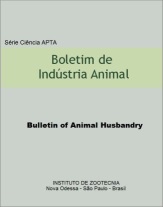NUTRITIONAL PROPERTIES AND SENSORY ANALYSIS OF YOGURTS MADE FROM MILK OF SHEEP FED LINSEED OIL
DOI:
https://doi.org/10.17523/bia.v74n3p288Keywords:
fatty acids, functional food, dairy derivative, supplementation.Abstract
The objective of this study was to evaluate the effect of inclusion of linseed oil in the diets of lactating ewes on the nutritional and sensory quality of yogurts. The yogurts were produced using 3 liters of sheep milk per treatment. In the first treatment, the yogurt was made from milk of ewes that did not receive dietary addition of linseed oil during lactation, and in the second treatment the yogurt was made from milk of ewes receiving 3% linseed oil supplementation in the concentrate. The chemical composition and fatty acid profile of the milk obtained in the two treatments were analyzed. In addition, sensory analysis was performed and the purchasing intention for the yogurts was evaluated. The results showed a similar fat, protein, total solids, moisture and ash content of the two yogurts produced (P>0.05). However, a higher concentration of omega-3 fatty acids was found in yogurts made from milk of ewes that received lipid supplementation (P<0.05). The samples did not differ in terms of acceptability or purchasing intention (P>0.05). The addition of 3% linseed oil to the diet of lactating ewes can be recommended as an alternative feed management of dairy sheep since it provides yogurts of adequate nutritional value and sensory characteristics. In addition, the product exhibits good acceptance and purchasing intention, and appears to be a promising product for the dairy industry.Downloads
Downloads
Published
Issue
Section
License
Os autores não serão remunerados pela publicação de trabalhos, pois devem abrir mão de seus direitos autorais em favor deste periódico. Por outro lado, os autores ficam autorizados a publicar seus artigos, simultaneamente, em repositórios da instituição de sua origem, desde que citada a fonte da publicação original seja Boletim de Indústria Animal. A revista se reserva o direito de efetuar, nos originais, alterações de ordem normativa, ortográfica e gramatical, com vistas a manter o padrão culto da língua e a credibilidade do veículo. Respeitará, no entanto, o estilo de escrever dos autores. Alterações, correções ou sugestões de ordem conceitual serão encaminhadas aos autores, quando necessário. Nesses casos, os artigos, depois de adequados, deverão ser submetidos a nova apreciação. As opiniões emitidas pelos autores dos artigos são de sua exclusiva responsabilidade. Todo o conteúdo deste periódico, exceto onde está identificado, está licenciado sob a Licença Creative Commons Attribution (CC-BY-NC). A condição BY implica que os licenciados podem copiar, distribuir, exibir e executar a obra e fazer trabalhos derivados com base em que só se dão o autor ou licenciante os créditos na forma especificada por estes. A cláusula NC significa que os licenciados podem copiar, distribuir, exibir e executar a obra e fazer trabalhos derivados com base apenas para fins não comerciais.













